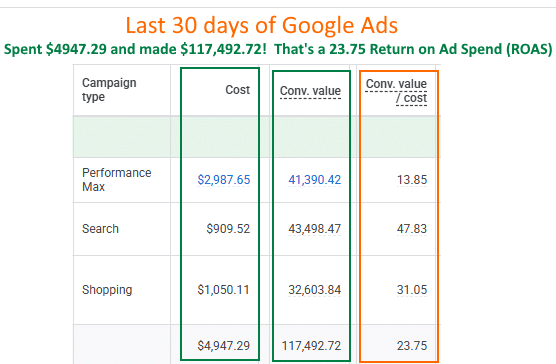You already know that your product is only as good as your brand, but it’s important to take a moment to reflect every now and then on why it’s so important. In the age of the pandemic, it’s even more difficult for businesses to thrive and they need a partner they can count on, not just a product. Brands that care about their customers and practice what they preach are the brands that are going to survive. Humanize your brand. Go back to your core values and remember why you’re doing business in the first place. You’re not just selling a product or service, you’re trying to improve people’s lives. Showcasing that your brand really cares about their customers (not just their money) will reflect in your reputation, help you build customer loyality, and maintain your audience’s trust throughout the long run. If you have any questions about how to humanize your brand or want us to handle it for you, reach out to us at Prebuilt Sites or The BBS Agency. We’d love to help you out!
At the risk of stressing something that marketing professionals well know, your product is only as good as your brand. But we need to take a moment and reflect on why this axiom is as important now as ever.
Just as the pandemic has upended our lives, it has upended our businesses. Businesses have been burdened by the same pandemic realities everyone is going through. They are trying to figure out how to not just survive but thrive amid the uncertainty.
Businesses need a partner, not just a product. And in an era of trust and transparency, they need a partner they can count on.
The values you stand for, delivering on what you promise, doing what’s right because you care are all critical to your brand’s reputation.
The Power of a Brand That Actually Really Cares
In short, you give a damn.
Doing anything less is a gamble. Research indicates that corporate reputation has a significant influence on price, perceived service quality and brand preference.
You can lose customers to bad experiences and aggressive competitors. Your credibility can get dragged through the social media gauntlet. If you don’t actively work to bolster your brand’s reputation, you are exponentially at risk from negative PR.
Without a strong brand, you can’t recover as quickly, while customer loyalty and affinity can weather nearly any storm. Here are some ways to bolster your brand’s reputation. They aren’t particularly difficult. But they do require courage and commitment.
Be True To Your DNA (aka “Transparency and Genuineness Are Key”)
Be true to your core values in what you do and what you say. What do you stand for? And how do you demonstrate that each day?
Businesses want to work with businesses that are transparent and genuine. If a business outwardly projects itself one way — say a creative, outside-the-box trailblazer — yet inwardly operates much differently — a buttoned-up corporate plodder — your clients will pick up on the ruse. When your external image accurately reflects your internal self, on the other hand, you build trust.
It is no surprise that Patagonia, a company with a global reputation for high-quality products and corporate and environmental responsibility, is atop the 2021 Axios Harris Poll 100 reputation rankings.
Even the words you use matter. Be bold and authentic in what you say because it signals what you really mean. At Ceros, one of our core values is, “We give a s***.” At Ceros, we regularly go above and beyond just selling our product to providing creative inspiration throughout the process, from hands-on training to community support. We have a team of people who can help a business with what it needs even when doing so requires going beyond “the contract.” We make this investment because we care. We give a damn.
Being true to your DNA also proves invaluable when a public relations crisis erupts. Remember when Starbucks received widespread criticism in 2018 after two Black men were arrested on suspicion of trespassing after asking to use the bathroom? Starbucks didn’t press charges and later reached a financial settlement with the men.
But the coffeehouse chain that has consistently advocated corporate social responsibility didn’t stop there. The company apologized publicly, fired the employee who called police, and announced it would close its U.S. stores for a day to give anti-bias training to 175,000 employees.
Starbucks practiced what it preached.
Don’t Be Lame (aka “Be a Trusted Business Partner, Not Just a Product or Service Provider”)
Businesses need an ally, not just a product or service provider. Think of the challenges they face: supply chain troubles, labor difficulties, the pace of technological change, the pandemic.
They need a business partner they can trust to help them navigate their needs and bring solutions to their problems. You need to deliver on exactly what you say you would, and if for some reason you can’t, you need to roll up your sleeves and help. Customer service is not a status page.
Your reputation also extends to your own business partners and how they do business. How they treat their own employees and think about the world can reflect back upon you.
Don’t Be Thanos (aka “Win The Battle For Hearts and Minds”)
Humanize your brand. Businesses have become too transactional in their relationships with customers. But customers are people, and people are emotional. Emotion influences their buying experience.
Show how your brand has a broader impact on society, whether it’s environmental, social or other causes. Research indicates that corporate social responsibility can elevate a brand’s equity and reputation.
Take AIG, for example. The global insurer stresses the importance of diversity, philanthropy and volunteerism and makes deep financial and other commitments to those causes. Earlier this year, it released its first Environmental, Social and Governance Report to measure and manage its efforts in these endeavors. AIG isn’t just making promises. AIG is holding itself accountable, as well.
Become An Advocate For Someone Who Needs One
I once worked for a diagnostic company that made blood glucose testing strips at about a third of the cost of the popular brand-name version. The brand-name manufacturer, a multibillion-dollar company, filed a patent infringement case, which made national news. During the case we heard stories from people with diabetes who with our strips could afford to test themselves at recommended frequency levels to avoid complications and live a better life.
We knew we faced an uphill battle in this David versus Goliath legal dispute. And yes, we had a business interest in the outcome. But we became emotionally invested in the lives of the people who were going to be most affected. We unintentionally became advocates in a way that we had not been before. We were their collective voice.
Your reputation isn’t just about your business and how you solve problems for customers. It’s also about how you can represent the voices of other people who matter.
Who Are You Fighting For?
Your brand is a powerful yet fragile thing. It can boost profits, customer goodwill, company morale, and the communities we live in, or if too largely ignored, can begin your organization’s slow march toward irrelevancy. By being true to yourself, a valued business partner and an advocate for others, you can help your brand stand out.
Originally posted on Convince & Convert.




